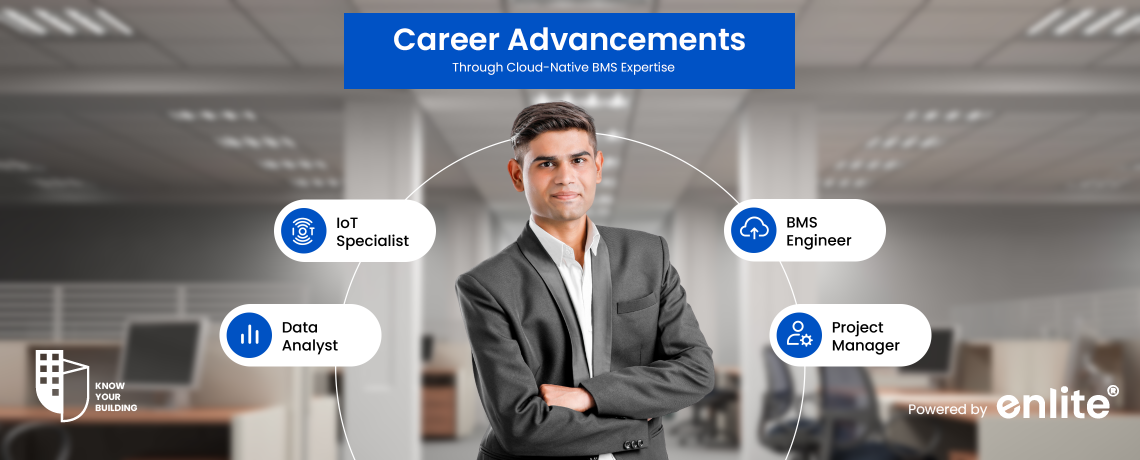Data Insights:
- The Global Smart Building Market is expected to reach USD 53.1 billion by 2025, growing at a CAGR of 34.3%. This growth indicates a rising demand for professionals skilled in smart building technologies, particularly in Cloud Native Wireless BMS.
- 90% of building managers believe that adopting cloud-based solutions for building management can improve operational efficiency and reduce energy consumption.
- Increasing reliance on IoT and wireless technologies in buildings opens up new career opportunities, offering roles in design, implementation, and management of BMS solutions.
Introduction: The Evolution of Building Management Systems (BMS)
Building Management Systems (BMS) are no longer confined to traditional, on-site management systems. With advancements in technology, Cloud Native Wireless BMS has emerged as a game-changer for the commercial real estate industry. As organizations strive for energy efficiency, sustainability, and cost savings, these systems offer unparalleled benefits. For professionals in the building management and facilities management sectors, gaining expertise in Cloud Native Wireless BMS can significantly enhance career prospects.
How Cloud Native Wireless BMS Enhances Career:
- Increased Job Opportunities:
- With the growing adoption of cloud-based solutions across various industries, the demand for skilled professionals in building management has surged.
- Job roles such as BMS Technicians, Facility Managers, Energy Managers, and Sustainability Consultants are increasingly incorporating cloud-native technologies.
- Specialized Skill Set:
- Mastering Cloud Native Wireless BMS gives professionals a highly specialized skill set, making them invaluable assets to organizations looking to adopt smart building technologies.
- Knowledge in wireless communication, cloud computing, and IoT integration enhances a professional’s versatility and competitiveness in the job market.
- Career Advancement in Sustainability:
- As sustainability becomes a key focus for businesses, professionals well-versed in energy-efficient building management technologies like Cloud Native Wireless BMS are in high demand.
- Sustainability Certifications linked to green building technologies (e.g., LEED, BREEAM) are enhanced by expertise in BMS systems, positioning professionals as leaders in environmental stewardship.
- Improved Operational Efficiency and Cost Reduction:
- Cloud-native systems optimize energy use and reduce operational costs, which directly impacts a building’s profitability.
- Professionals who can implement and manage these systems are seen as key contributors to a company’s bottom line, making them more likely to earn promotions and salary increases.
- Remote Work Flexibility:
- The cloud-native nature of BMS allows for remote monitoring and control of building systems, which enables more flexible work environments.
- Facility managers and energy managers can monitor and troubleshoot systems from anywhere, leading to better work-life balance and career satisfaction.
- Enhancing Problem-Solving Skills:
- Working with Cloud Native Wireless BMS requires advanced problem-solving abilities to address real-time challenges, such as energy inefficiencies or system failures.
- Professionals gain experience in troubleshooting and optimizing systems, which sharpens their analytical skills and enhances their career trajectory.
- Cross-Industry Opportunities:
- Cloud Native Wireless BMS can be implemented across industries like healthcare, education, retail, hospitality, and commercial real estate.
- Professionals with experience in this field have the opportunity to diversify their career by exploring different industries and expanding their skill sets.
- Leading in Digital Transformation:
- Professionals in building management who are well-versed in digital transformation technologies position themselves as leaders in their field.
- With BMS technology evolving rapidly, those who can lead the transition to cloud-based systems and wireless solutions gain a competitive edge, often securing leadership roles.
- Enhanced Networking Opportunities:
- Working with cutting-edge technologies offers opportunities to engage with a global network of professionals, consultants, and thought leaders in the field of smart buildings and sustainability.
- Conferences, webinars, and workshops focused on BMS allow professionals to stay updated and increase their visibility within the industry.
- Continuous Learning and Growth:
- The rapidly evolving nature of cloud-based technologies provides continuous learning opportunities for building management professionals.
- Enrolling in courses and certifications like the Cloud Native Wireless BMS Certification Course helps individuals stay ahead of industry trends and remain competitive in the job market.
Key Benefits of Cloud Native Wireless BMS for Career Enhancement:
- High Demand for Skills: Growing job opportunities in an expanding smart building industry.
- Specialization and Expertise: Expertise in cloud-native systems provides a competitive edge.
- Sustainability Career Pathways: Skills directly contribute to environmental and energy efficiency goals.
- Improved Job Flexibility: Remote monitoring and management of building systems enhance work-life balance.
- Professional Growth: Continuous learning and career development through new technologies.
- Industry Leadership: The opportunity to take on leadership roles in the digital transformation of building management.
Conclusion: Future-Proofing Careers with Cloud Native Wireless BMS
As buildings become smarter and more energy-efficient, the demand for professionals skilled in Cloud Native Wireless BMS continues to rise. For anyone in the building management, facilities management, or sustainability sectors, mastering this cutting-edge technology can open doors to exciting career advancements, new opportunities, and leadership roles in the evolving smart building industry.
Whether you are just starting in the field or looking to specialize, Cloud Native Wireless BMS is an investment in your professional growth. Know Your Building offers a comprehensive Cloud Native Wireless BMS Certification Course, providing the knowledge and skills needed to excel in this dynamic field.
Take the next step in your career today! Enroll in the Cloud Native Wireless BMS Certification Course and gain the expertise to lead the future of building management.














